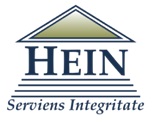ORCID
Eugenio Olmedo-Peralta - 0000-0003-1219-7587
Keywords
Data pools, Information exchanges, Data Act, Data Spaces, Digital Markets Act, Competition
Abstract
In the digital market, data is a critical resource, but its handling reveals a twosided situation. First, dominant platforms, known as gatekeepers, control major data sources. They may extract data unfairly from dependent partners, or abuse their market position by demanding excessive data for free services, and may also acquire companies solely for their data. The Digital Markets Act counters this by imposing data handling restrictions and portability duties. Conversely, nongatekeeper companies need data access to compete and innovate. The European Data Act addresses this, by granting data portability rights and promoting data sharing spaces, yet a more extensive data marketplace is needed.
Data pools are essential for companies to access and use data, leading to enhanced derivative data utility. However, they pose risks of collusion, market foreclosure, and abuse of dominance. Exchanges in data pools can infringe competition rules, as seen in the CJEU Asnef-Equifax case. Data types vary from raw to processed, and meaningful information, including non-digital data. Commercially sensitive information shared in pools is scrutinized under Article 101(1) TFEU. Specific attention is needed for exchanges involving pricing, production capacities, and commercial strategies, as these directly restrict competition. Public information is exempt from this scrutiny.
To mitigate collusion risks, companies can use blind sharing or limit sensitive information exchanges. Technical data pools, essential for industry and product development, are regulated similarly to patent pools, with access on FRAND terms to prevent market foreclosure. Identifying essential data or market entry as well as ensuring fair access is crucial to address these competition risks.
This paper begins with a brief analysis of the central role that data collection and accumulation play in market functioning and company behaviour. In this realm, a concentrative force arises, leading more powerful companies to accumulate more data, thereby raising significant entry barriers for their competitors. Explored subsequently are the measures adopted from a regulatory standpoint to address these problems through the DMA, DSA, and the Data Act. In this context, the paper explains how data pooling represents a viable approach to address this issue. However, highlighted are also the significant competition risks that may arise from the use of this mechanism, such as facilitating collusive practices, market closure, or other exploitative abuses. Discuss next are potential remedies that can be employed to overcome these risks, and promote the use of data pools as a means to enhance accessibility and access to data. From the author’s perspective, it would be necessary to establish a safe harbour (in the form of specific guidelines on data sharing) that provides certainty about the assumptions and conditions under which data pooling can proceed, without posing a substantial risk to the competitive functioning of markets.
Acknowledgements
Funding
This paper has been drafted as a part of the Research Project: Marco jurídico para la competencia dinámica en mercados digitales y para la innovación a través de Inteligencia Artificial (CODIG-IA), ref. PID2021-122536OB-I00 (PI Eugenio Olmedo Peralta), funded by MCIN/AEI/10.13039/501100011033 and the European Union “NextGenerationEU”/PRTR; so as a part of the Research Project: Consumidores y pequeños profesionales en la contratación en Mercados Digitales: prácticas anticompetitivas, desleales y explotación de dependencia económica (CoMeDi), Ref. ProyExcel_00665. Proyectos de Excelencia, Programa de Ayudas a la I+D+i, en régimen de concurrencia competitiva, Plan Andaluz de Investigación, Desarrollo e Innovación (PAIDI 2020) (PIs: Olmedo Peralta / Benavides Velasco).
The cost of editing selected articles published in the Yearbook of Antitrust and Regulatory Studies in the 2022–2024 is covered by funding under the program “Development of scientific journals” of the Ministry of Education and Science under agreement No. RCN/SN/0324/2021/1. Task title: “Verification and correction of scientific articles and their abstracts”. Funding value: 36 298,00 PLN; The task consists of professional editing of articles published in English.
Declaration of Conflict of interests
The author declared no potential conflicts of interest with respect to the research, authorship, and publication of this article.
Declaration about the scope of AI utilisation
The author did not use AI tools in the preparation of this article.
Recommended Citation
Peralta, E. O. (2024). The Creation of Data Pools as Information Exchanges: Antitrust Concerns. Yearbook of Antitrust and Regulatory Studies, 17(29), 49-88. https://doi.org/10.7172/1689-9024.YARS.2024.17.29.2
First Page
49
Last Page
88
Page Count
40
DOI
10.7172/1689-9024.YARS.2024.17.29.2
JEL Code
K21, K24, K12
Publisher
University of Warsaw







